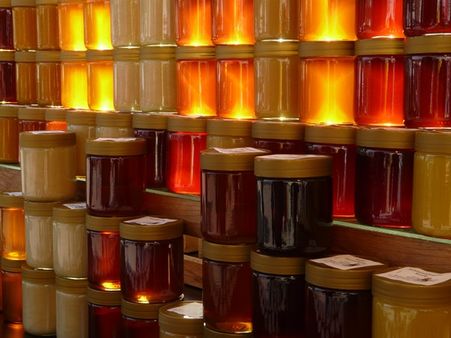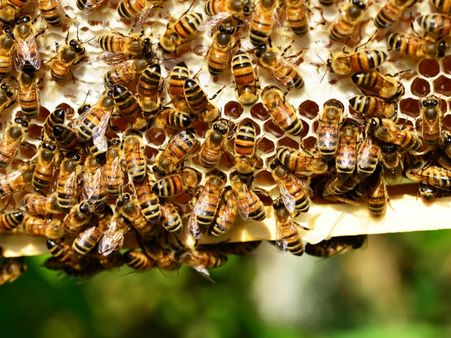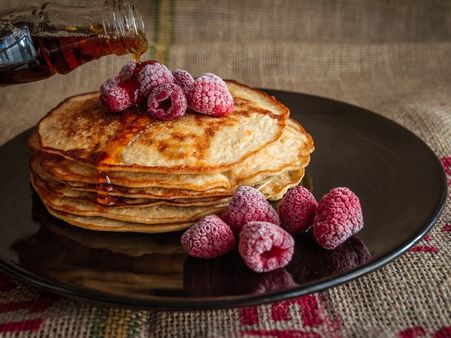Just In
- 3 hrs ago

- 7 hrs ago

- 8 hrs ago

- 13 hrs ago

Don't Miss
- News
 Lok Sabha Election 2024: Polling Underway For 2 LS Seats In Meghalaya
Lok Sabha Election 2024: Polling Underway For 2 LS Seats In Meghalaya - Technology
 Nothing Phone 2 Receives NothingOS 2.5.5 Update with ChatGPT Integration and More
Nothing Phone 2 Receives NothingOS 2.5.5 Update with ChatGPT Integration and More - Movies
 Maidaan Box Office Day 9 Prediction: Ajay Devgn’s Football Saga Inch Towards 30Cr Ahead Of 2nd Weekend
Maidaan Box Office Day 9 Prediction: Ajay Devgn’s Football Saga Inch Towards 30Cr Ahead Of 2nd Weekend - Finance
 Trade Setup: Nifty Slides Below 22,000 Mark; Global Markets Plunge On Reports Of Explosions In Iran
Trade Setup: Nifty Slides Below 22,000 Mark; Global Markets Plunge On Reports Of Explosions In Iran - Sports
 LSG vs CSK IPL 2024: Ekana Stadium Pitch Report, Lucknow Weather Forecast & Live Streaming Info
LSG vs CSK IPL 2024: Ekana Stadium Pitch Report, Lucknow Weather Forecast & Live Streaming Info - Automobiles
 Aprilia RS 457 Accessories: A Detailed Look At The Prices
Aprilia RS 457 Accessories: A Detailed Look At The Prices - Education
 Karnataka SSLC Result 2024 Soon, Know How to Check Through Website, SMS and Digilocker
Karnataka SSLC Result 2024 Soon, Know How to Check Through Website, SMS and Digilocker - Travel
Telangana's Waterfall: A Serene Escape Into Nature's Marvels
What Is Manuka Honey? Benefits And Side Effects
The latest health fad taking the world by storm is manuka honey. But what exactly is manuka honey? And why are people going so crazy about it?
We will explore that in this article today.

What Is Manuka Honey?
Manuka
honey
is
a
special
type
of
medicinal
honey
produced
only
by
the
bees
that
draw
nectar
and
pollen
from
the
flowers
of
the
manuka
bush
in
New
Zealand.
And
while
this
geographical
rarity
is
definitely
one
of
the
reasons
behind
its
stardom,
the
bigger
(and
more
valid)
reason
is
that
this
special
type
of
honey
has
antibiotic
properties
that
are
graded
on
the
Unique
Manuka
Factor
(UMF)
scale
from
5
to
20
for
medical
viability.

The Unique Manuka Factor
The unique manuka factor of every batch of manuka honey is determined by testing the concentration of 3 different compounds within the honey, namely DHA, leptisperin, and methylglyoxal, all of which have antibacterial properties.
Therefore,
higher
the
concentration
of
these
compounds,
higher
will
be
the
UMF
of
the
manuka
honey.
In
fact,
manuka
honey
with
a
UMF
of
12+
is
considered
medical
grade
and
is
used
in
bandages
to
heal
wounds,
bed
sores,
burns,
and
cuts.

Why Is Manuka Honey So Good At Healing Wounds And Infections?
When you apply manuka honey to a wound, the first thing it does is absorb excess water, plasma, and impurities from the area. This prevents wound infection and speeds up the healing process.
Additionally, the antibiotic property of its medicinal compounds give this honey the ability to kill bacteria that can cause festering of wounds, restore the pH of the skin, and get rid of dead skin cells once the wound has started to heal.

Other Medicinal Uses Of Manuka Honey
Doctors have used manuka honey for treating diabetic and arterial ulcers and acute burns, and the results have been positive and promising.
In fact, applying manuka honey to wounds have shown to reduce the risk of contracting community-acquired MRSA (a deadly, antibiotic-resistant strain of Staphylococcus aureus).

Should I Use Manuka Honey If I Am Allergic To Bees And Pollen?
If you are hypersensitive to bee stings and pollen, it's best to avoid manuka honey since, fundamentally, it is still a type of honey and therefore will contain the saliva of honey bees and stray pollen grains.
Otherwise, there are no reported side effects of using this product.

Where Can I Buy Manuka Honey?
Since this honey is only produced in New Zealand, it's best to buy it online from vendors certified by the UMF Honey Association. This will protect you from scams and buying low-quality honey with UMF less than 5.

How To Eat Manuka Honey
Manuka
honey
can
be
eaten
the
same
way
as
regular
honey
-
spread
over
toast,
as
a
sugar
replacement
in
beverages
and
sweets,
or
directly
by
the
spoonful.
Just
remember:
the
texture
of
manuka
honey
is
more
granular
and
viscous
at
room
temperature,
so
it
will
feel
less
like
a
liquid
and
more
like
a
thick
spread.
Enjoyed reading this article? You may also like these:
1. Top 12 Health Benefits of Raw Honey You Didn't Know


-
 beautyGot A New Piercing? 5 Home Remedies To Heal It Fast
beautyGot A New Piercing? 5 Home Remedies To Heal It Fast -
 healthMyths vs Facts: Is Honey Better Than Sugar For Weight Loss? Can It Burn Belly Fat?
healthMyths vs Facts: Is Honey Better Than Sugar For Weight Loss? Can It Burn Belly Fat? -
 healthMyths vs Facts: Lemon Water With Honey For Weight Loss: Does It Work Or Harm Your Body?
healthMyths vs Facts: Lemon Water With Honey For Weight Loss: Does It Work Or Harm Your Body? -
 beautyAchieve Radiant Skin with These DIY Facial Recipes!
beautyAchieve Radiant Skin with These DIY Facial Recipes! -
 healthDitch Refined Sugar: Discover Healthy Sources Of Natural Sugar
healthDitch Refined Sugar: Discover Healthy Sources Of Natural Sugar -
 healthCan This Garlic And Honey Fat Burner Combo Help You Lose Weight?
healthCan This Garlic And Honey Fat Burner Combo Help You Lose Weight? -
 beautyOne Ingredient, Five Days: Hair Care Routine For Frizzy Hair
beautyOne Ingredient, Five Days: Hair Care Routine For Frizzy Hair -
 skin careTwo 2-Ingredient Face Masks For Dry Skin
skin careTwo 2-Ingredient Face Masks For Dry Skin -
 hair care3 Honey-Based Hair Masks For Shiny, Frizz Free Hair
hair care3 Honey-Based Hair Masks For Shiny, Frizz Free Hair -
 wellnessCan Raw Honey Lower Blood Sugar And Cholesterol?
wellnessCan Raw Honey Lower Blood Sugar And Cholesterol? -
 skin careMrunal Thakur's Secret To Spotless Skin: Get That Subtle Glow!
skin careMrunal Thakur's Secret To Spotless Skin: Get That Subtle Glow! -
 skin careTurmeric And Garlic Homemade Face Masks For Fighting Acne: Which One Would You Choose?
skin careTurmeric And Garlic Homemade Face Masks For Fighting Acne: Which One Would You Choose?


 Click it and Unblock the Notifications
Click it and Unblock the Notifications



